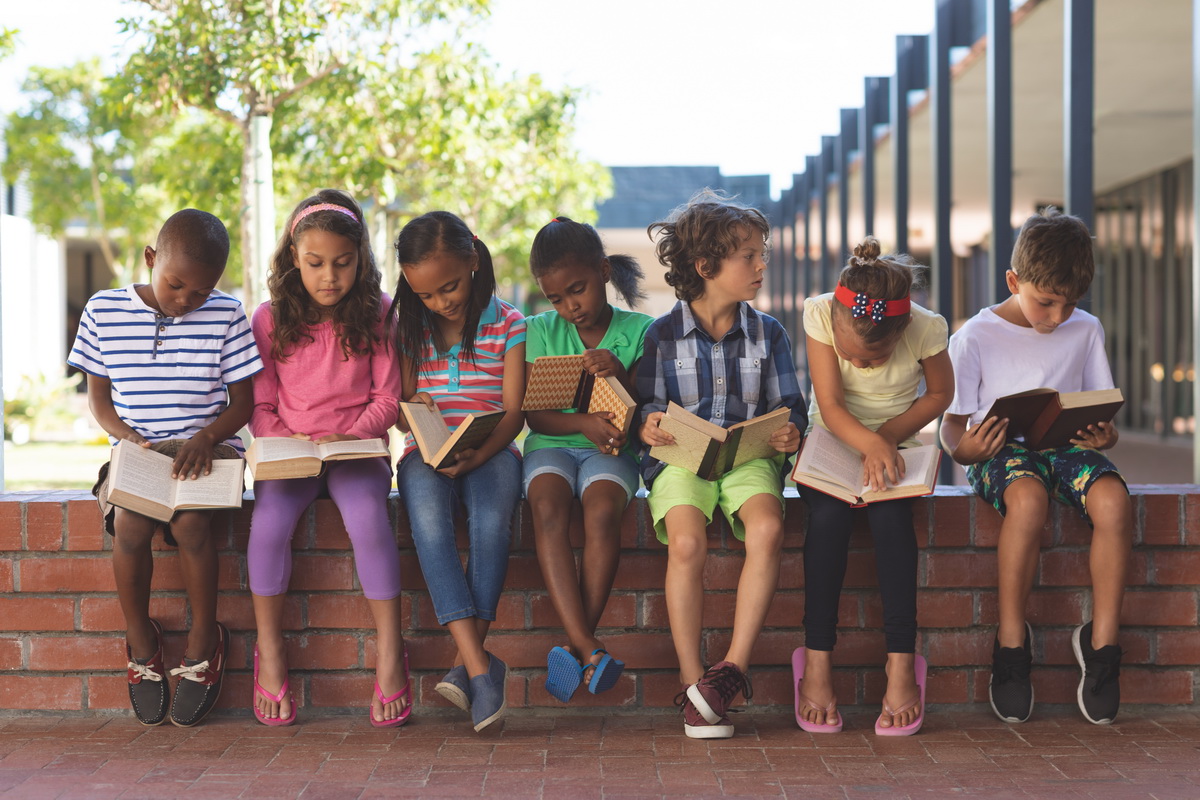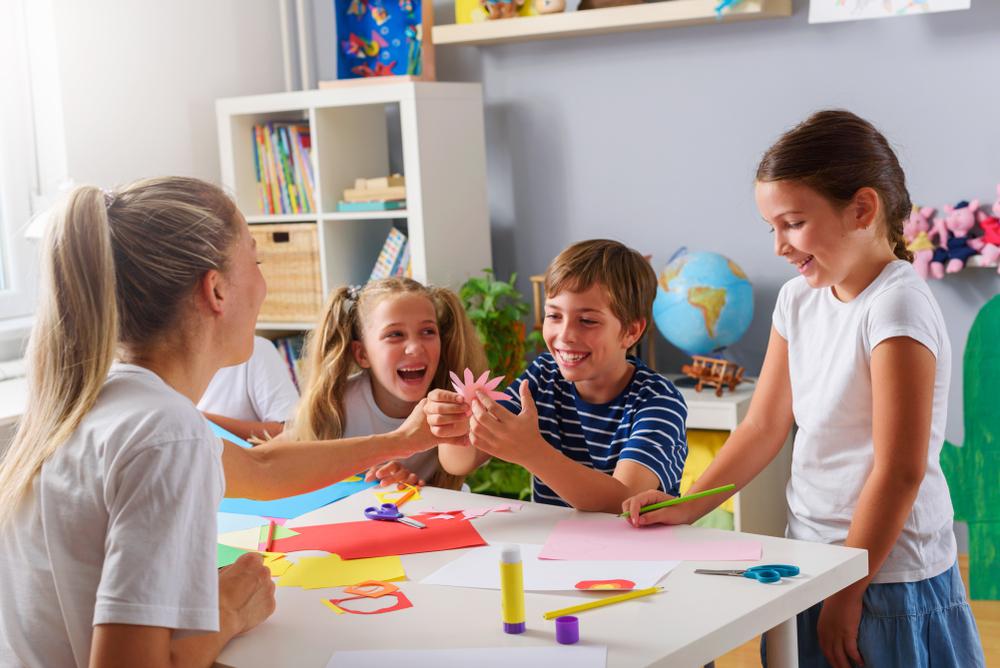Cognitive Development Reading Comprehension Worksheets for Ages 3-9
11 filtered results
-
From - To
Discover our richly designed Cognitive Development Reading Comprehension Worksheets tailored for young learners ages 3-9. These engaging resources foster essential reading skills, helping children decode language and enhance their understanding of texts. Through fun activities and age-appropriate challenges, kids build critical thinking abilities, expand vocabulary, and improve problem-solving skills. Our worksheets are meticulously crafted to adapt to each child’s developmental stage, making learning an exciting adventure. Ideal for both classroom settings and homeschooling, our worksheets support every learner in achieving academic success. Visit us at Kids Academy for engaging and effective tools for your child's cognitive development.


Rhymes in Poems Worksheet
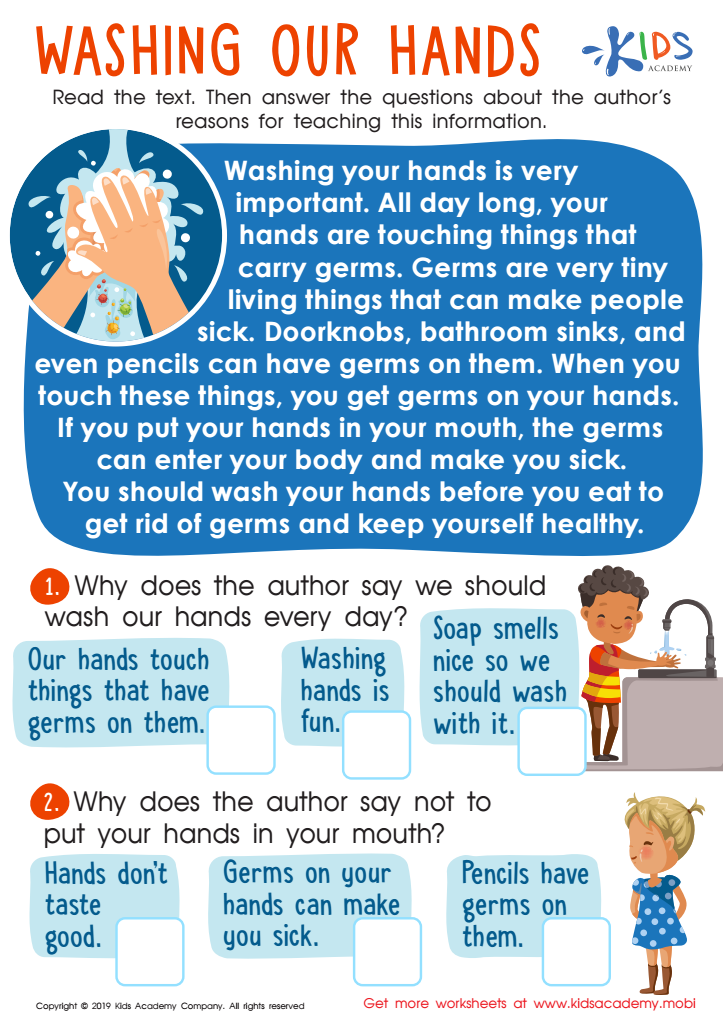

Washing Our Hands Worksheet
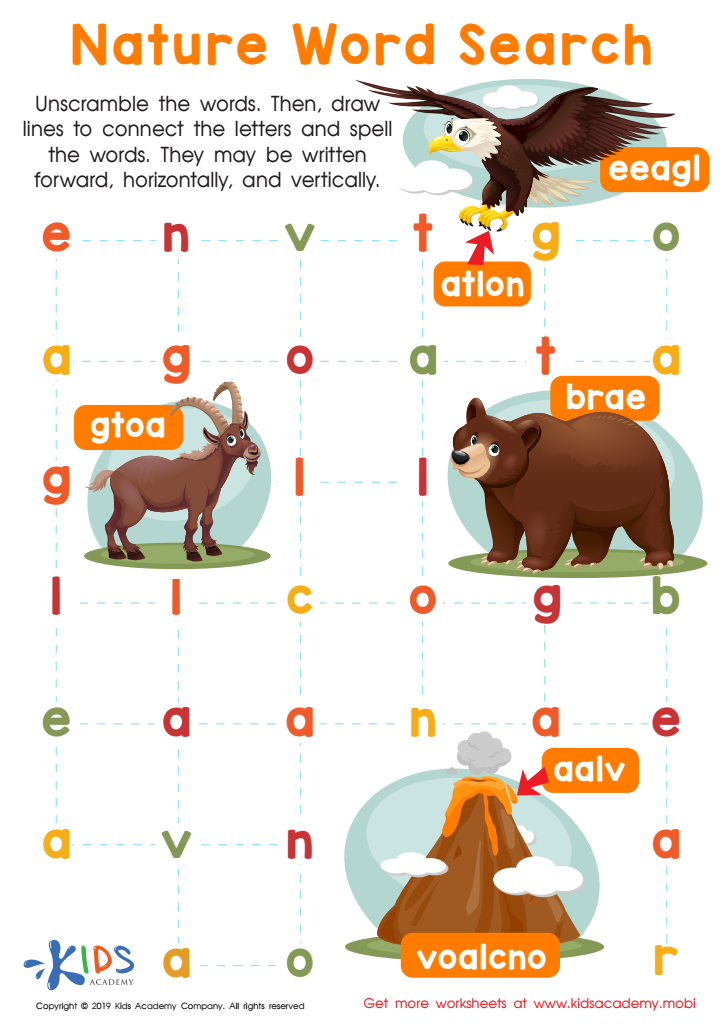

Nature Word Search Worksheet
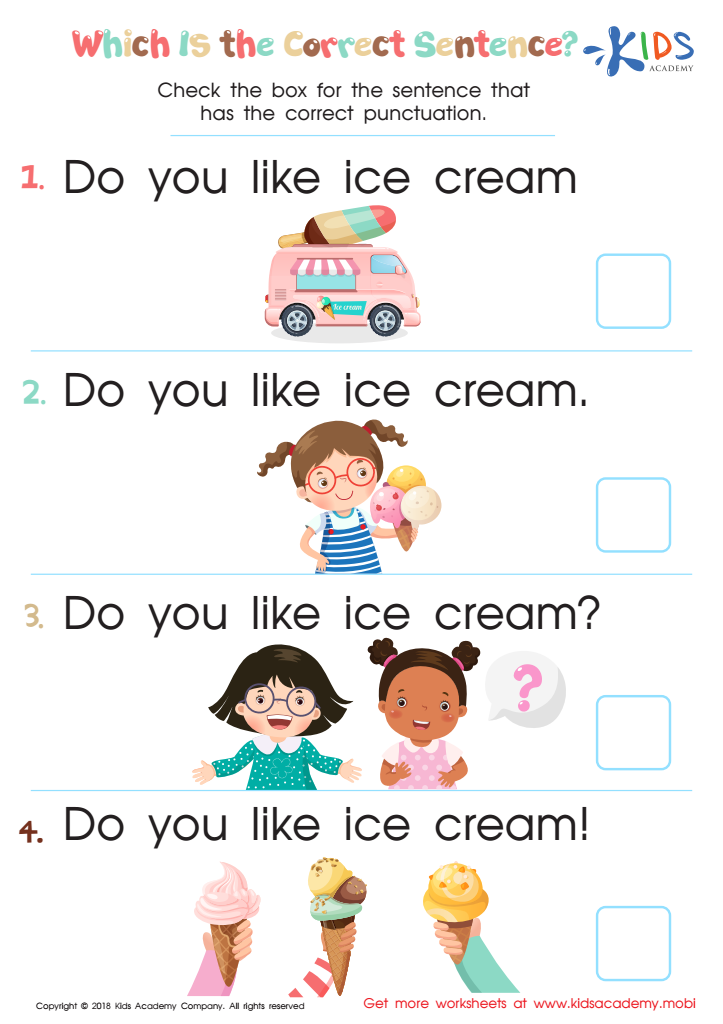

Which is the Correct Sentence? Worksheet
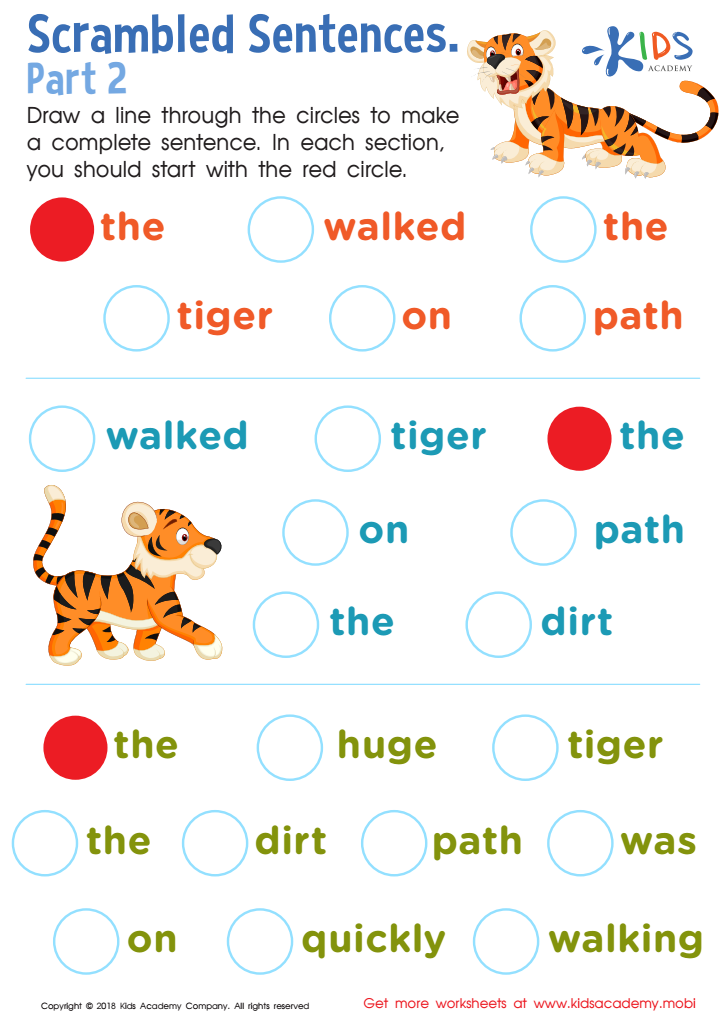

Scrambled Sentences Part 2 Worksheet
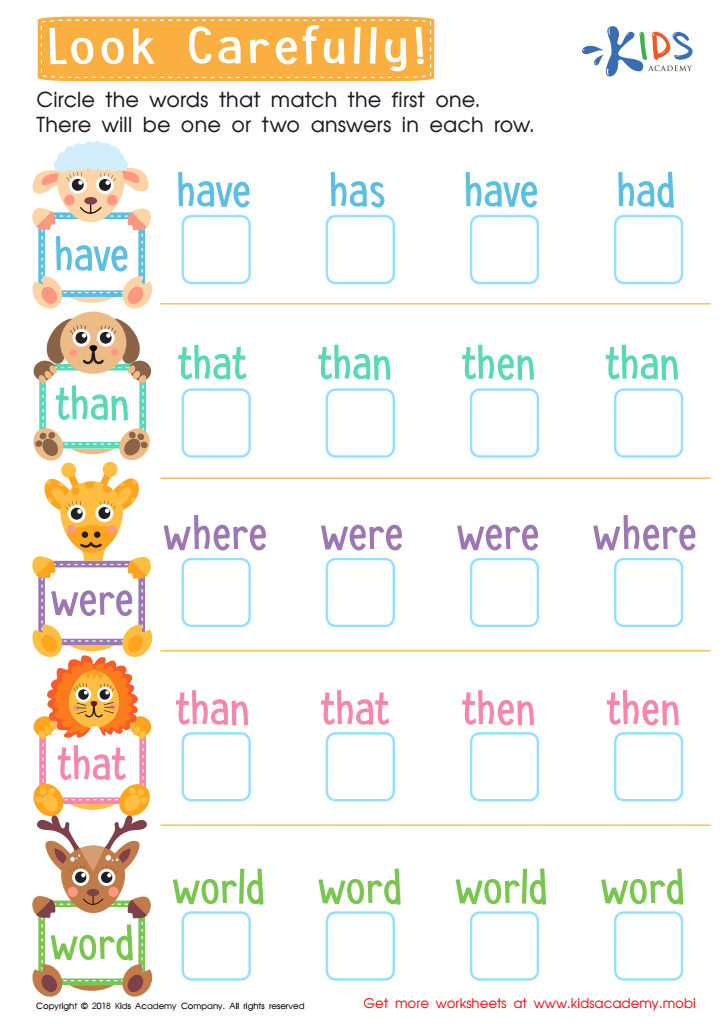

Look Carefully Worksheet
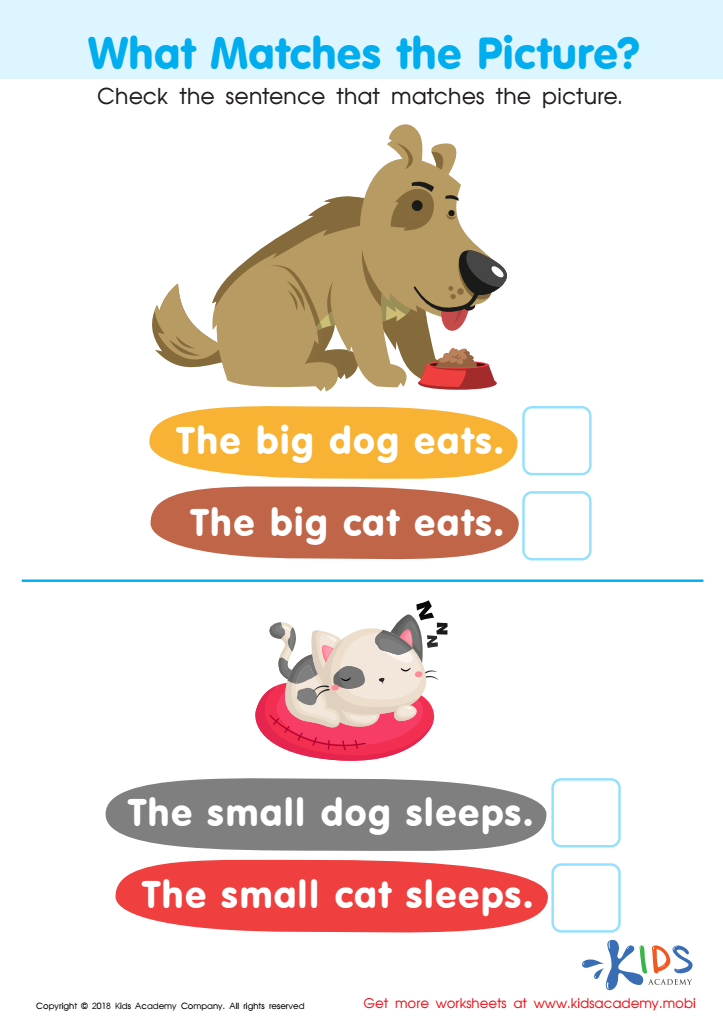

What Matches the Picture? Worksheet
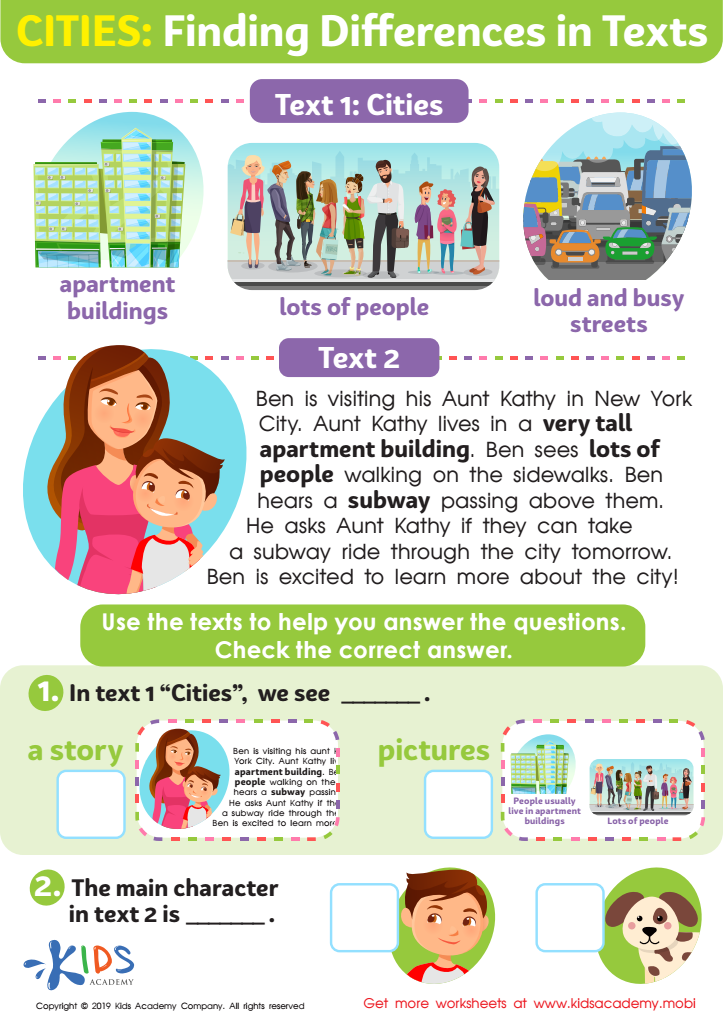

Cities: Finding Differences Worksheet
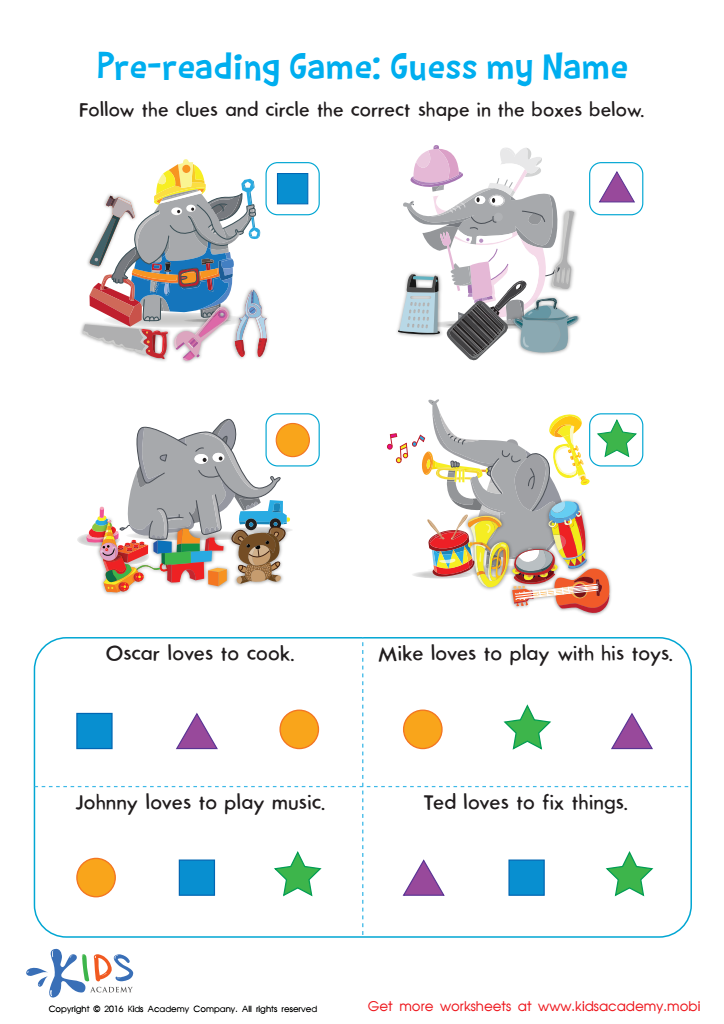

Pre Reading Worksheet Guess My Name
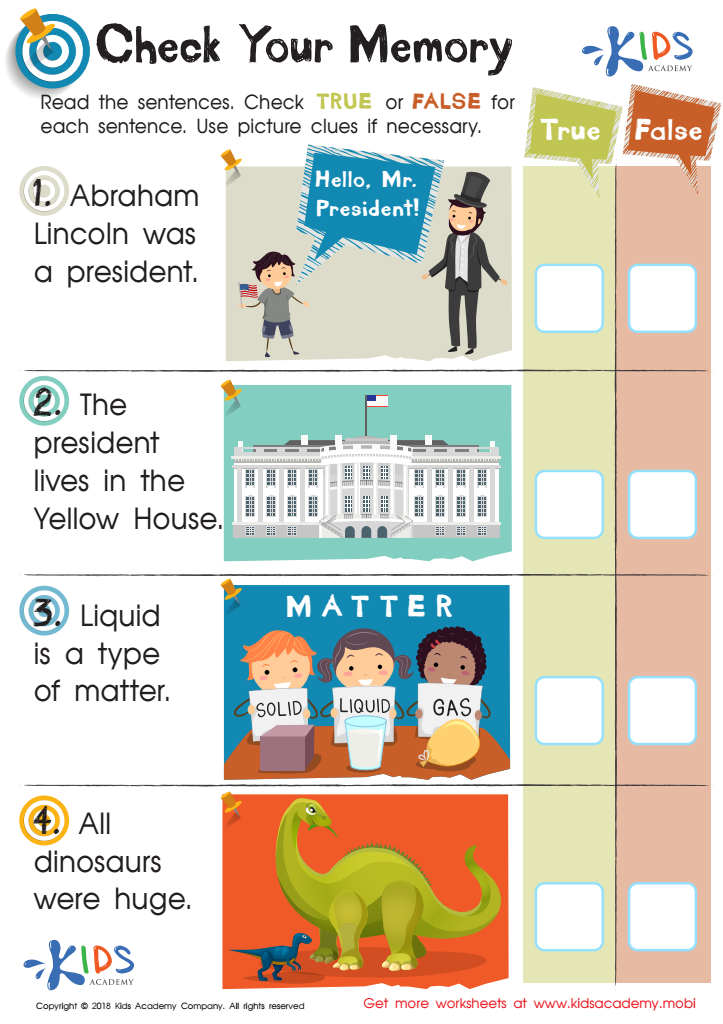

Check Memory Worksheet
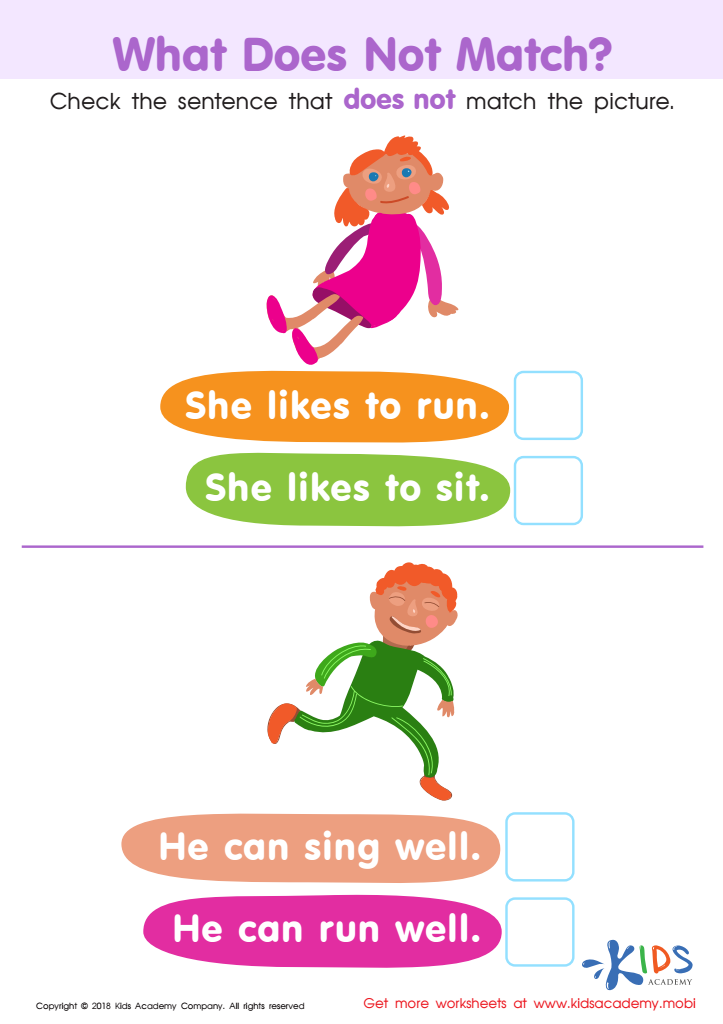

What Does Not Match? Worksheet
Cognitive development and reading comprehension are vital for children ages 3-9 because they lay the foundation for future learning and overall intellectual growth. During these formative years, children's brains are incredibly malleable and receptive. Engaging in activities that stimulate cognitive skills, such as reading comprehension, helps build crucial neural connections. Strong reading skills enhance vocabulary, improve concentration, and foster analytical thinking. Stories encourage imagination and empathy by allowing children to explore different perspectives and cultures.
For parents and teachers, focusing on these areas is essential as reading proficiency is a reliable predictor of academic success in later years. Children who develop good reading comprehension skills early are more likely to excel in all subjects, including math and science, which often require the ability to understand and process complex written material. Furthermore, children who enjoy reading are more likely to become lifelong learners with a natural curiosity.
Interacting with texts—whether through reading aloud, asking questions, or discussing stories—also supports social and emotional development. It gives children a sense of structure and routine, while also boosting their confidence and self-esteem as they master new skills. Therefore, prioritizing cognitive development and reading comprehension acts as a gateway to a richer, fuller educational experience and overall better life outcomes.
 Assign to My Students
Assign to My Students



